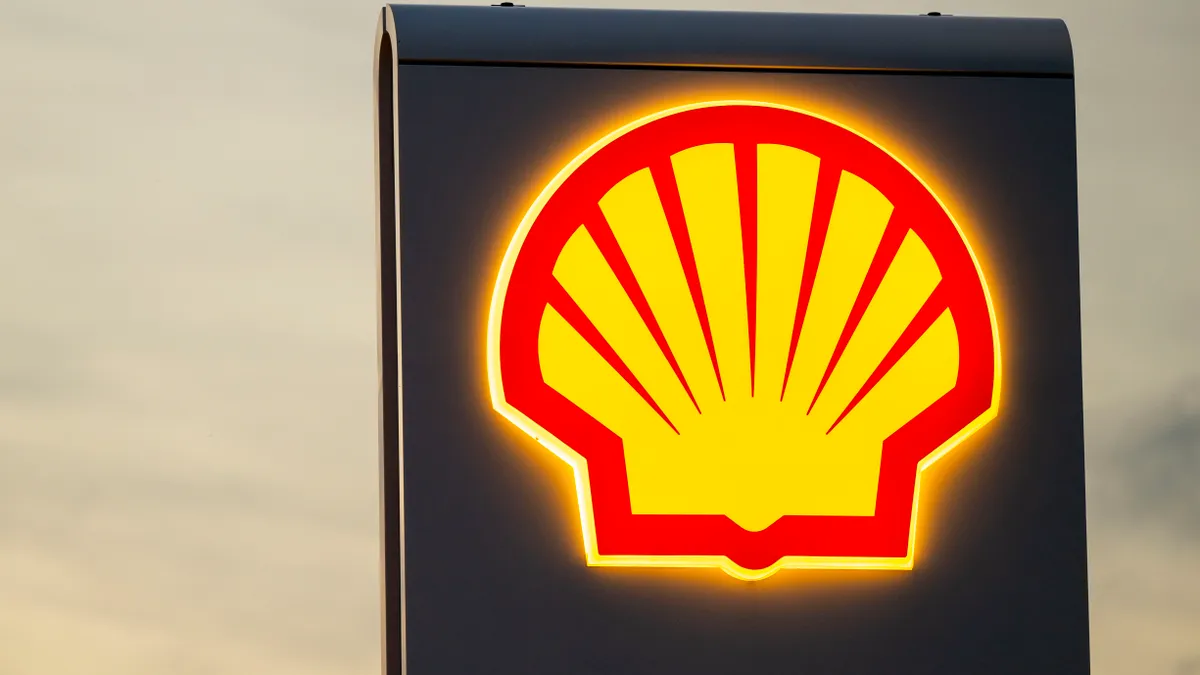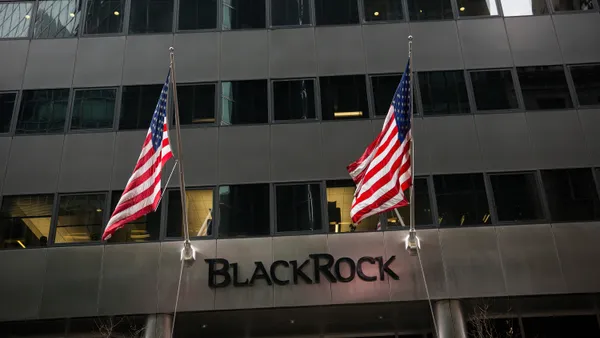Dive Brief:
- A group of Shell shareholders are calling out the oil giant on its plans to increase sales of liquified natural gas and asking the company to justify how its growth strategy is compatible with its climate goals, according to a shareholder resolution filed Tuesday.
- The proposal was filed by U.K.-based investors Brunel Pension Partnership, Greater Manchester Pension Fund and Merseyside Pension Fund and co-filed by the Australasian Centre for Corporate Responsibility. This group of shareholders represents 0.25% of Shell’s total shares, according to a Shell spokesperson. The proposal is also backed by over 100 independent shareholders represented by responsible investment nonprofit ShareAction.
- The resolution asks Shell to disclose how it calculated the level of demand for LNG, as described in its 2024 LNG outlook, and how it “reconciles this demand with its broader strategy, including its climate commitments.” The oil giant has a goal to become a net-zero emissions energy business by 2050.
Dive Insight:
The shareholder resolution comes ahead of Shell’s capital markets day and annual general meeting, scheduled for March and May 2025, respectively.
LNG is expected to account for 30% of Shell’s upstream hydrocarbon production in 2030, and the oil giant plans to expand its LNG business by around 20-30% by the end of the decade, compared to a 2022 baseline, according to its latest energy transition strategy report.
Investors backing the Jan. 7 resolution said Shell’s forecasted LNG demand, as outlined in its most recent outlook, is higher than all scenarios published by the International Energy Agency. This includes the IEA’s Net Zero Emissions by 2050 scenario — which Shell’s outlook exceeds by 301% — and its Announced Pledges Scenario, which assumes that all climate goals are met but more are introduced — which the oil giant surpasses by 92%.
The proposal also states Shell’s LNG demand outlook has “not been materially revised in response to major changes in the global energy market.”
A Shell spokesperson told ESG Dive Wednesday that the oil company’s shareholders have “strongly backed our strategy to deliver more value with less emissions at successive AGMs, with the growing role of LNG at the heart of this strategy.”
“We are confident in the future role of LNG in our strategy, as we transform to become a net-zero emissions energy business by 2050,” the spokesperson added.
Last March, Shell rolled out an updated energy transition strategy that scaled back a 2030 carbon emissions reduction target and scrapped a goal to further reduce its carbon footprint by 2035. At the time, a Shell spokesperson told ESG Dive that the oil company’s 2050 net-zero target “remains at the heart of [its] strategy,” and attributed Shell’s decision to retire its initial climate goal to the “uncertainty in the pace of change across many countries, and the broader energy transition.”
The following May, the oil giant’s shareholders approved this diluted climate strategy during the company’s 2024 annual general meeting, rejecting a climate resolution put forward by shareholder activist group Follow This, which asked Shell to align its scope 3 emissions reductions targets with the Paris Agreement.
The new shareholder proposal also asks Shell for more transparency in relation to its LNG demand assumptions due to the “significant financial implications” it holds for shareholders if these estimations don’t materialize, and the negative climate implications if they do materialize.
Vaishnavi Ravishankar, Brunel Pension Partnership’s head of stewardship, expressed concerns about the “apparent disconnect between Shell's LNG growth strategy and its stated climate targets and Paris-aligned pathway” in a press release accompanying the proposal.
“We need to see further transparency to assess Shell's alignment with climate goals, particularly in the context of the recent removal of its interim 2035 climate target.”












